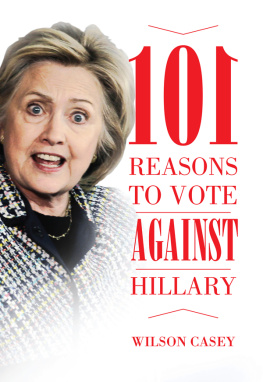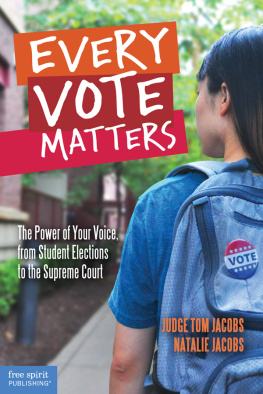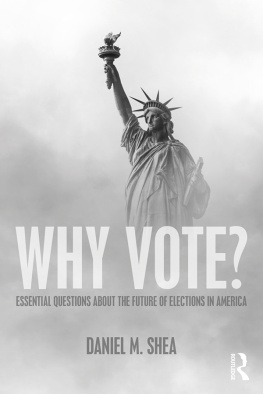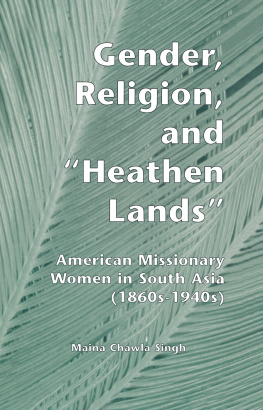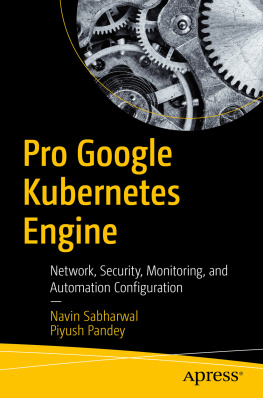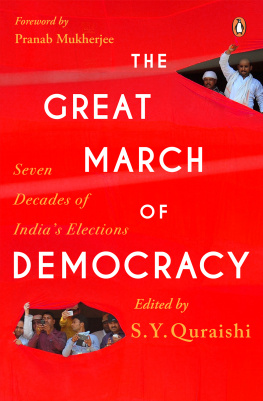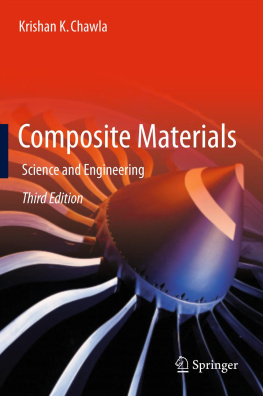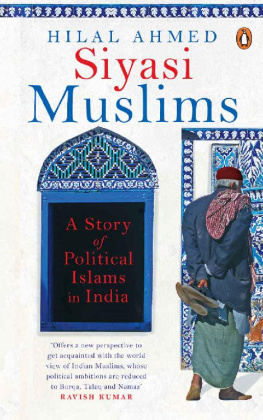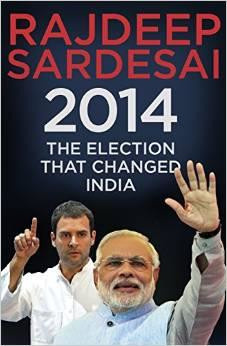Navin Chawla - Every Vote Counts: The Story of India’s Elections
Here you can read online Navin Chawla - Every Vote Counts: The Story of India’s Elections full text of the book (entire story) in english for free. Download pdf and epub, get meaning, cover and reviews about this ebook. year: 2019, publisher: HarperCollins India, genre: Politics. Description of the work, (preface) as well as reviews are available. Best literature library LitArk.com created for fans of good reading and offers a wide selection of genres:
Romance novel
Science fiction
Adventure
Detective
Science
History
Home and family
Prose
Art
Politics
Computer
Non-fiction
Religion
Business
Children
Humor
Choose a favorite category and find really read worthwhile books. Enjoy immersion in the world of imagination, feel the emotions of the characters or learn something new for yourself, make an fascinating discovery.

- Book:Every Vote Counts: The Story of India’s Elections
- Author:
- Publisher:HarperCollins India
- Genre:
- Year:2019
- Rating:3 / 5
- Favourites:Add to favourites
- Your mark:
- 60
- 1
- 2
- 3
- 4
- 5
Every Vote Counts: The Story of India’s Elections: summary, description and annotation
We offer to read an annotation, description, summary or preface (depends on what the author of the book "Every Vote Counts: The Story of India’s Elections" wrote himself). If you haven't found the necessary information about the book — write in the comments, we will try to find it.
Every Vote Counts: The Story of India’s Elections — read online for free the complete book (whole text) full work
Below is the text of the book, divided by pages. System saving the place of the last page read, allows you to conveniently read the book "Every Vote Counts: The Story of India’s Elections" online for free, without having to search again every time where you left off. Put a bookmark, and you can go to the page where you finished reading at any time.
Font size:
Interval:
Bookmark:
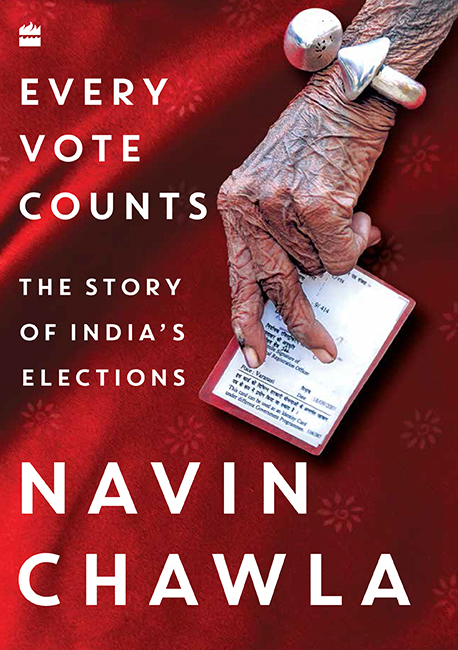
EVERY VOTE
COUNTS
The Story of Indias Elections
NAVIN CHAWLA

To the true heroes of the Indian election story: the thousands of dedicated polling officials, including teachers and revenue staff as well as police officials, all of whom walk the extra mile to enable the country to vote
CONTENTS
D URING my years in the Election Commission of India, I enjoyed my frequent interactions with students. I tried not to refuse invitations to campuses and addressed almost fifty across the country. I looked forward to the lively question-and-answer sessions that followed my lectures. Among the frequently asked questions was why the Commission did not do something to prevent criminals from being elected to parliament. The audience would be disappointed when I replied that the jurisdiction to amend the law lay with parliament and not with the Commission. How could lawbreakers be lawmakers, asked the students almost in one voice. While I extolled the many strengths of the Commission, the students in turn asked what we were doing about money power.
It was once again students who raised the issue of transgenders and asked why they had not been recognized as a separate entity, which we then proceeded to do. When questions such as these were raised, they were met with huge applause. At the end of the sessions, students would cluster around me to ask more questions. Often enough they wanted to know whether I was writing a book on elections. My reply was invariably that I would think about it.
When I finally set about the task of writing this book, I realized how vast the subject was. I needed to condense into a single volume the nuts and bolts of election management, a history of current practices and challenges we confronted and those that lay ahead. I took a cue from my lectures to make the narrative personal with anecdotes from my own experience.
When I began my research, I found there was very little information available on how Indias early elections had been conducted in the first four decades after Independence. None of the early chief election commissioners had written any books on their electoral experiences, nor, to the best of my knowledge, kept diaries or notes that were accessible to a researcher. It was with some difficulty that I was able to get a little information on our first chief election commissioner Sukumar Sen from his daughters, one living in Kolkata and the other in London. My inquiries regarding K.V.K. Sundaram drew a blank. It was therefore welcome that T.N. Seshan, J.M. Lyngdoh, T.S. Krishnamurthy and S.Y. Quraishi had contributed to the still fledging literature on the subject.
To the question why I chose to write eight years after leaving the Commission, I am reminded of the time that I decided to write a biography of Mother Teresa (now St Teresa of Kolkata). Fifteen years into my association with her, I first discussed the idea of a biography with the legendary literary agent Gillon Aitken in London. He was sufficiently enthused to pursue me with reminders. After a few such exchanges, I wrote back to say that I was not unduly concerned if other books on the subject were published before I was ready with mine. Others had their stories to tell while I had mine. When the biography that I worked on for five years was finally published in the winter of 1992 in the United Kingdom, it immediately found its own niche in an already crowded field. Hopefully, this offering on Indias elections would contribute towards the history and functioning of a widely admired institution.
During the four years when I was an election commissioner, I gained experience that came with conducting twenty-eight assembly elections for the states and Union territories. There is no doubt that this readied me for the Big Onethe general election of 2009. There could be no substitute for the hands-on learning that I gained while travelling throughout our vast country on official work, encountering different traditions and cultures. Each part of the country revealed its own difficulties for which there were often no tailor-made solutions. Wherever possible, I consciously travelled through some districts by road instead of flying from point to point. This enabled me to get acquainted with local officials and their problems over a cup of chai. I gained insights that would often not trickle up at formal reviews.
A credible electoral system is the very core of democracy. A glimpse into our history since gaining independence in 1947 illustrates the importance accorded to free and fair elections. The framers of the Constitution had the prescience to dedicate a separate section to deal with elections, providing unqualified powers to the Commission for their superintendence, direction and control. With remarkable foresight they envisaged the Election Commission to be a fiercely independent body. They were also careful to leave it with sufficient residuary powers to deal with unforeseen situations that might emerge.
Into these unchartered waters came universal adult franchise which, as is well known, had a difficult passage in the West. Meanwhile, India with barely 16 per cent literacy in 1947 and with the added problems caused by the uneven integration of princely states and a traumatic Partition, had taken a major leap of faith. Many observers predicted doom from the start. However, the vision of the early architects of the freedom movement was translated into successful reality by the tenacity of a handful of civil servants and the early election commissioners. This I seek to bring out in the chapter on Indias first general election of 195152.
The early chapters include a kaleidoscopic account of the efficacy of the electoral machinethe subject of study in management schools globally. The chapter titled Notes from the 2009 General Election amplifies this. Yet not everything about the election scenario is praiseworthy. I have examined some of the unwelcome trends across three chapters on money and muscle power, paid news and post-truth.
I would have liked to examine at least half a dozen important assembly elections held during my tenure, including Bihar (OctoberNovember 2005), West Bengal (AprilMay 2006), Uttar Pradesh (AprilMay 2007) and Karnataka (May 2008). I chose instead to examine the 2008 assembly election in Jammu and Kashmir in some depth, for this election was of importance beyond the states own boundaries. The multilayered processes that the Commission followed to ensure fairness and transparency in the face of almost insurmountable odds has merited a chapter.
Much has been written about Maoist extremism but, as far as I know, no one has written about the problems of conducting elections in Maoist-affected areas. I have deliberately not strayed into the complex reasons for the origin or persistence of this conflict. This was arguably the foremost challenge I faced in the 2009 general election. Hopefully, this confrontation with Maoist forces will recede.
I have devoted a full chapter on Electronic Voting Machines (EVMs). This has become especially relevant because in the last few years this machine, which was once described as a national pride by the Karnataka High Court, has come in for intense criticism. It has stoked controversy where to my mind none exists. I have traced the history of the EVM and the introduction of the Voter Verifiable Paper Audit Trail (VVPAT)the printer recently created to corroborate the EVM results.
During the course of writing this book, some seminal election-related concerns were raised. These included the feasibility of conducting simultaneous elections to parliament and state legislative assemblies once every five years. The introduction of compulsory voting was another such proposal. Since these had come up during my years in the Commission, I decided to explore both in a chapter on emerging trends. Finally, without dwelling on the unjust personal attack launched by N. Gopalaswami against me, I have highlighted what I consider to be an issue of vital importance: the role of the CEC vis--vis the election commissioners. Is he truly the first amongst equals? Or was that but the pious hope of the Supreme Court? I believe this is a question that is crying out for constitutional reform.
Font size:
Interval:
Bookmark:
Similar books «Every Vote Counts: The Story of India’s Elections»
Look at similar books to Every Vote Counts: The Story of India’s Elections. We have selected literature similar in name and meaning in the hope of providing readers with more options to find new, interesting, not yet read works.
Discussion, reviews of the book Every Vote Counts: The Story of India’s Elections and just readers' own opinions. Leave your comments, write what you think about the work, its meaning or the main characters. Specify what exactly you liked and what you didn't like, and why you think so.

